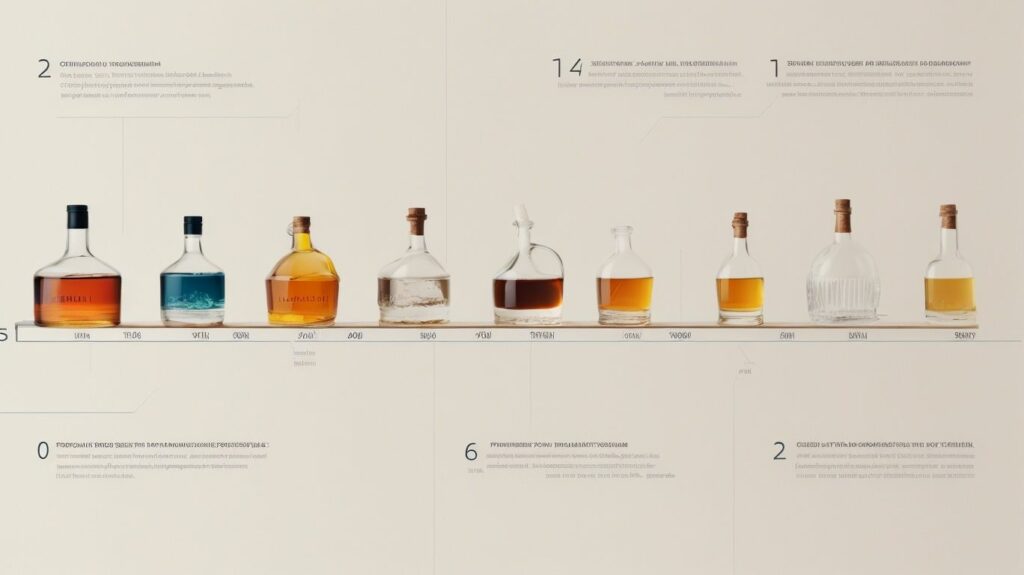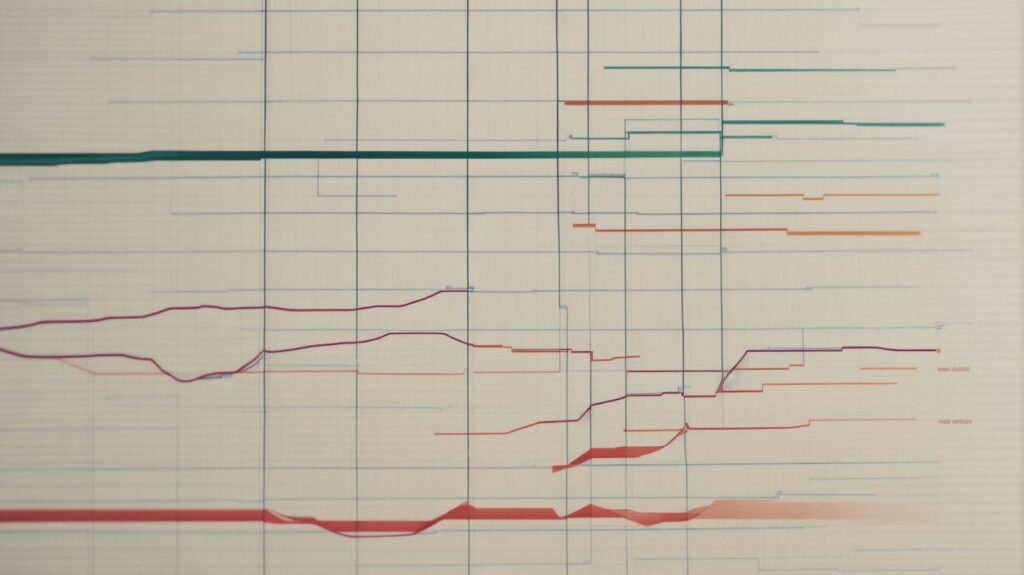20+ Years Experience
Specialist Alcohol Help

Alcohol addiction withdrawal is a challenging journey, fraught with physical and psychological discomforts.
But did you know that understanding the withdrawal process, its common symptoms, and available treatments, can empower individuals to take control of their recovery?
In this blog post, we’ll explore the various aspects of alcohol withdrawal, from its causes to the importance of medical detoxification, and guide you in choosing the right treatment setting for a successful recovery stop drinking.
Alcohol addiction withdrawal occurs when individuals with alcohol use disorder reduce or stop their alcohol consumption, leading to a range of symptoms and complications.
The indications of alcohol withdrawal may range from mild to moderate tremors, irritability, anxiety, or agitation.
The most extreme manifestations of alcohol withdrawal syndrome may involve delirium tremens, hallucinations, and seizures, which can have significant alcohol health consequences.
Body chemistry, daily alcohol intake, age, and concurrent physical or psychological health issues are some of the determinants of both alcohol dependency and withdrawal likelihood.
Symptoms of alcohol withdrawal syndrome can occur soon after a person’s last consumption. It can manifest as little as two hours after binge drinking.
It is essential to recognise the severity of withdrawal symptoms and seek appropriate medical intervention to ensure a safe and successful recovery.
Alcohol withdrawal syndrome is a condition characterised by changes in brain activity due to long-term and too much alcohol, leading to a heightened state of arousal and various withdrawal symptoms.
The fundamental cause of alcohol withdrawal syndrome is the reduced sensitivity brain function of GABA receptors in the brain.
Prolonged and excessive alcohol consumption can cause the brain to become accustomed to alcohol consumed due to its depressant effects, resulting in a dependence on the substance.
As a result, when the individual stops excessive drinking again, the central nervous system becomes hyper-aroused. This means the individual will experience withdrawal symptoms.
The Clinical Institute Withdrawal Assessment for Alcohol Scale (CIWA-Ar) is a tool used to monitor the progress of alcohol withdrawal.
The CIWA-Ar scale helps medical professionals assess the severity of withdrawal symptoms and determine the most appropriate course of treatment.
Wernicke’s encephalopathy, an acute condition characterised by severe confusion, abnormal eye movements, and difficulty walking or keeping one’s balance, can also occur as a complication of chronic alcohol use or withdrawal.
There is a strong connection between alcohol addiction and experiencing withdrawal symptoms, as the consumption of alcohol can reduce the severity of withdrawal symptoms, thus reinforcing the addiction cycle.
This vicious cycle often makes it difficult for individuals to break free from their addiction and achieve long-lasting sobriety.
Addressing withdrawal symptoms is an essential step in the recovery process as it provides an opportunity to initiate treatment for alcohol abuse and address any other coexisting medical and psychiatric disorders.
Benzodiazepines, such as chlordiazepoxide, diazepam, lorazepam, and oxazepam, are often recommended for the management of alcohol withdrawal symptoms.
These medications aid in stabilising the patient and reducing the risk of seizures and other more serious symptoms (including life threatening symptoms)afterwards.
The symptom-triggered approach to administering benzodiazepines during alcohol withdrawal treatment involves administering medication based on the patient’s own experience of withdrawal symptoms rather than following a fixed schedule.
The severity of alcohol withdrawal symptoms can range from mild to life-threatening, and medical intervention is necessary.
Severe alcohol withdrawal is a serious condition that requires immediate attention and clinical management. The symptoms of acute alcohol withdrawal itself are quite common.
They include tremors, craving for and experiencing alcohol withdrawal, insomnia, vivid dreams, anxiety, hypervigilance, agitation, irritability, loss of appetite (i.e., anorexia), nausea, vomiting, headache, and sweating.
It is important to recognise these symptoms and seek prompt treatment to ensure a safe and comfortable recovery.
Mild symptoms of alcohol withdrawal may include anxiety, irritability, insomnia, tremors, sweating, and headaches.
These symptoms can often be managed with outpatient treatment and support, allowing individuals to continue with their daily activities while receiving the necessary care for acute and chronic alcohol withdrawal.
For patients with mild withdrawal symptoms and no increased risk for seizures, non-pharmacological treatments such as frequent reassurance and monitoring in a tranquil environment are recommended.
Moderate symptoms of alcohol withdrawal can include anxiety, irritability, insomnia, tremors, sweating, and an increased heart rate.
These symptoms may necessitate closer monitoring and pharmacological treatment, such as benzodiazepines, to ensure the individual’s safety and comfort during the withdrawal process.
It is crucial to consult with a healthcare professional to determine the most appropriate course of action based on the severity of the symptoms.
Severe symptoms of alcohol withdrawal, such as alcohol withdrawal seizures and delirium symptoms, can be life-threatening and necessitate immediate medical attention and hospitalisation.
Delirium tremens (DTs) is characterised by intense anxiety and agitation, tremors and shaking, sweating and fever, nausea and vomiting, insomnia and sleep disturbances.
Recognising these severe symptoms early withdrawal, and seeking prompt medical care is crucial to ensuring a safe and successful recovery.
The alcohol withdrawal timeline is comprised of three distinct phases: initial, peak, and resolution. Symptoms may manifest within hours of the last drink and may persist for several weeks or months.
Understanding this timeline can help individuals and healthcare professionals anticipate and manage the various symptoms and challenges that may arise during the withdrawal process.
The initial phase of alcohol withdrawal typically begins within hours of the last drink and may include symptoms such as anxiety, insomnia, and tremors.
During this phase, it is important for individuals to seek professional help and support to ensure a safe and comfortable detoxification process.
A medical professional can provide medications to help reduce the severity of withdrawal symptoms and provide support to help individuals.
The peak phase of alcohol withdrawal usually occurs within 48 to 72 hours following the last drink. During this phase of ethanol withdrawal, symptoms may intensify and individuals may experience complications of alcohol use disorders such as seizures or delirium symptoms.
Prompt medical intervention and close monitoring are crucial to reducing the risk of life-threatening complications during this phase.
The resolution phase involves a gradual decrease in symptoms over several days or weeks, with ongoing support and treatment. During this phase, some minor symptoms may still be present, but they are usually milder than during the acute withdrawal stage.
Ongoing therapy, counselling, and support from healthcare professionals are essential to ensuring a successful recovery during this phase.
Post-Acute Withdrawal Syndrome (PAWS) is a less common, prolonged phase of withdrawal that can last for months and may lead to relapse due to cyclical waves of symptoms.
Symptoms of PAWS can include depression, anxiety, fatigue, insomnia, and cravings. The duration of PAWS varies depending on the intensity of alcohol intake or substance abuse used, ranging from a few weeks to a year.
Recognising the signs of PAWS and seeking ongoing support and treatment can help individuals maintain their recovery and prevent relapse.
Medical alcohol detoxification is essential for managing alcohol withdrawal symptoms and minimising the risks associated with self-detox.
Detoxification is the first step in addiction treatment and involves the use of medications and medical supervision to ensure a safe and comfortable detoxification process.
Medications used in detoxification can help reduce the severity of withdrawal symptoms and reduce the risk of addiction.
Self-detox can be hazardous extremely dangerous and potentially life-threatening due to the uncertain nature of withdrawal symptoms and the absence of medical oversight.
Attempting self-detox may result in serious withdrawal symptoms, increased risk of relapse, potential medical complications, lack of access to necessary medications, and inadequate monitoring of health.
Seeking professional help and medical supervision is crucial to ensuring a safe and successful recovery.
Medical detox offers a secure environment, medications to reduce symptoms, and continual support from healthcare professionals.
During medical detox, individuals are closely monitored, medications are administered to alleviate withdrawal symptoms, and any co-occurring medical conditions are addressed.
The controlled environment of medical detox ensures a safe and comfortable withdrawal process, providing the best chance for a successful recovery.
Treatment options for alcohol withdrawal may include benzodiazepines and other medications, therapy and counselling, and supportive care.
These treatment modalities can help manage withdrawal symptoms and address the underlying causes of addiction, providing a comprehensive approach to recovery.
By utilising a combination of these treatments, individuals can begin to make progress in their recovery journey.
Benzodiazepines, such as chlordiazepoxide, diazepam, lorazepam, and oxazepam, are commonly recommended for the management of alcohol withdrawal symptoms.
These medications can help stabilise patients and reduce the risk of seizures and other severe withdrawal symptoms.
In some cases, additional medications such as anticonvulsants, antipsychotics, beta-blockers, and alpha-adrenergic agonists may be utilised to provide further support during the withdrawal process.
Therapy and counselling play a crucial role in addressing the psychological aspects of addiction and developing coping strategies for long-term recovery.
Common therapies utilised for treating alcohol withdrawal include Cognitive Behavioural Therapy (CBT), Motivational Enhancement Therapy (MET), Contingency Management, Family Therapy, and Support Groups.
Participation in therapy and counselling can help individuals understand the root causes of their addiction and develop effective strategies for managing triggers and maintaining sobriety.
Supportive care is an integral component of alcohol withdrawal treatment, ensuring that individuals receive the necessary care and attention during this challenging time.
Supportive care involves monitoring vital signs, administering hydration and nutrition, and addressing any accompanying medical issues.
Additionally, vitamins and other interventions may be provided to promote overall health and well-being during the withdrawal process.
Choosing the right treatment setting depends on the severity of withdrawal symptoms and individual needs.
Inpatient or outpatient alcohol and other drug (AOD) treatment settings are suitable for individuals who do not present with severe withdrawal or any complicating illnesses.
Consultation with a healthcare professional is essential to ascertain the most suitable treatment setting for each individual, taking into account clinical and experimental research.
Inpatient treatment provides intensive monitoring and support for individuals with moderate to severe withdrawal symptoms or co-occurring disorders. In this setting, patients receive 24-hour care, medication management, therapy, and support from healthcare professionals.
Inpatient treatment offers a secure, supervised environment that can greatly enhance the chances of a successful recovery.
Outpatient treatment may be suitable for those with mild-to-moderate symptoms who can safely detox at home with regular medical supervision and support. This treatment option allows individuals to continue with their daily activities while receiving the necessary care and support for managing their withdrawal symptoms.
It is important to consult with a healthcare professional to determine whether outpatient treatment is the most appropriate option based on individual needs and the severity of withdrawal symptoms.
Addressing co-occurring disorders and developing long-term recovery strategies are essential for maintaining sobriety and preventing relapse.
Identifying and treating any underlying mental health disorders is crucial for comprehensive addiction treatment and long-term recovery.
In addition to treating co-occurring disorders, individuals should also focus on developing and implementing long-term recovery strategies to manage triggers and maintain sobriety.
Identifying and treating co-occurring mental health disorders is crucial for comprehensive addiction treatment and long-term recovery.
A comprehensive assessment, including a physical exam, mental health evaluation, and substance use history, is the initial step in identifying co-occurring mental disorders together.
Recognising these disorders and seeking appropriate treatment can help individuals manage their symptoms and avoid relapse.
Long-term recovery strategies may include ongoing therapy and counselling, participating in support groups, and engaging in healthy activities.
Additionally, having a strong support system is essential for maintaining sobriety and preventing relapse.
By implementing these strategies and staying committed to recovery, individuals can achieve lasting success in their journey towards sobriety.
Common withdrawal symptoms of drugs and alcohol include nausea, increased blood pressure, agitation, insomnia, sweating, and anxiety.
These physical and mental reactions can be prolonged symptoms severe enough to disrupt daily activities and require medical attention.
It typically takes between one and four weeks to return to normal after stopping drinking.
Physical withdrawal symptoms should have subsided within a week to stop drinking, and improvements in health, such as less blood pressure, reduced risk of heart disease and increased liver recovery, will start to be noticeable by the second or third week.
A month of abstinence marks a big accomplishment and usually signals when people start to feel their best.
To replace alcohol as a coping mechanism, we recommend the following:
Finding ways to cope with anxiety can be difficult, but there are many strategies that can help. Reach out to friends and family for comfort and support.
Get active with physical activities like walking or swimming. Practice mindfulness techniques like meditation or yoga.
Distract yourself with TV or music. Work on developing social skills to cope with social anxiety.
Inpatient treatment for alcohol withdrawal offers 24/7 monitoring and support in a specialised facility, while outpatient treatment allows individuals to receive care at home with regular medical check-ups.
This type of care is beneficial for those who are struggling with severe alcohol dependence or addiction and need a safe and supportive environment to help them through the withdrawal process.
It can also provide the necessary medical attention to ensure that the individual is safe and comfortable during the process.
Co-occurring mental health disorders can complicate the alcohol abuse, withdrawal and substance abuse treatment and recovery process, making it more difficult to achieve long-term success without proper treatment.
Proper treatment is essential for those with co-occurring mental health disorders to achieve long-term success in alcohol withdrawal and recovery.
In summary, understanding alcohol addiction withdrawal, its symptoms, and available treatments can empower individuals to take control of their recovery.
By choosing the right treatment setting, addressing co-occurring disorders, and developing long-term recovery strategies, individuals can overcome the challenges of withdrawal and achieve lasting sobriety.
Remember, seeking medical professionals’ help and support is crucial to ensuring a safe, comfortable, and successful recovery journey.
If you need help with severe alcohol withdrawal syndrome or you have any questions, please do not hesitate to contact our team today.
There are a range of other services that we can provide. Have a look at the list below for more information:











































































































































We Aim To Reply To All Enquiries With-in 24-Hours